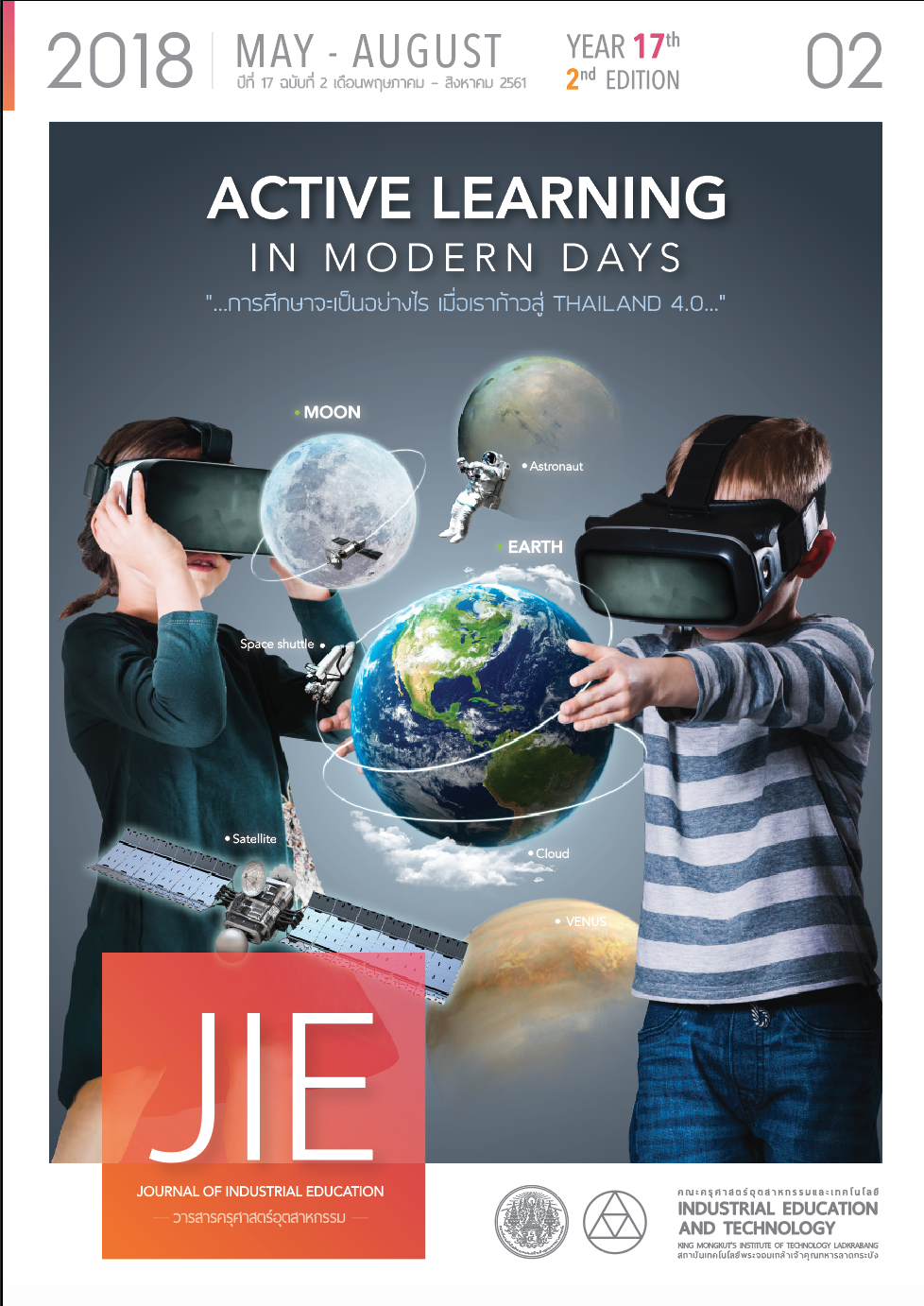A STUDY OF SCIENCE LEARNING ACHIEVEMENT AND GROUP WORK BEHAVIOR ON THE RESPONSE OF PLANT AND ANIMAL FOR 2 nd GRADE STUDENTS USING THE COOPERATIVE LEARNING : GROUP INVESTIGATION (GI)
Keywords:
The Cooperative Learning : Group Investigation (GI), Group Work BehaviorAbstract
This research aims to study of science learning achievement and group work behavior on the response of plant and animal for 2 nd grade students using the cooperative learning : group investigation (GI) in the first semester the academic year 2017 at "Piboonbumpen" Demonstration School, Burapha University. The participants of the study were obtained by the cluster random sampling technique (n=26). The research instruments consisted of 1) lesson plans on the response of plant and animal using cooperative learning : group investigation (GI), 2) a science learning achievement test, and 3) group work behavior assessment form. Mean, standard deviation, and t-test were used to analyze the data.
The research findings were summarized as follows:
1. The post-test means scores of science learning achievement of 2 nd grade students after using the cooperative learning : group investigation (GI) teaching were significantly higher than the pre-test means scores at the .05 level.
2. The post-test means scores of science learning achievement of 2 nd grade students after using the cooperative learning : group investigation (GI) teaching were significantly higher than 70 percent criterion at the .05 level.
3. The post-test means scores of group work behavior of 2 nd grade students after using the cooperative learning : group investigation (GI) teaching were significantly higher than the pre-test means scores at the .05 level.
4. The post-test means scores of group work behavior of 2 nd grade students after using the cooperative learning : group investigation (GI) teaching were significantly higher than 70 percent criterion at the .05 level.
References
[2] Sharan, Yeal, and Shlomo Sharan. “Group Investigation Expands Cooperative Learning.” Education Leadership 47, 4 (December 1989 – January 1990)
[3] Saowalak Noi-asa. 2004. Development Science Learning Activities Entitled "Substances in Our Darly Life" for Matthayomsuksa 1 Using Coopciative Learning : An Action Research. Master degree of Education (Curriculum and Instruction), Mahasarakham University.
[4] Johnson, D.W. and Johnson, R.T.1991. Learning together and alone. Englewood Cliffs NJ : Prentice – Hall.
[5] Slavin, R.E. 1995. Cooperative Learning: Theory Research and Practice (2nd Ed). Massachusetts: A Division of Simon & Schuster.
[6] Nongkran Jitjong .2007. Management Skill of Grade Level 2 Students Learning Science Through Group Investigation. Master of Education (Science Education), Chiang Mai University.
[7] Kusita M. 2011 - 2012. Development of Online Courseware for Cooperatives Learning for Studying the Principles Of Problems-Solving with Computer Language For. Mathayomsuksa V Student at ChamnansamakkhiWitthaya school. Journal of Industrial Education, 11(1), p.59-67
[8] Nittaya Changkamanon.2001. The Effects of Cooperative Learning Using The Group Imvestigation Technique on Learing Achievement and Group Work Skills in the Course soc 503: Social Studies of Mathayom Suksa V Students at Princess Sirindhorn’s College in Nakhon Pathom Province. Master of Education (Curriculum and Instruction), Sukhothai Thammathirat open University.
[9] Surapong Wichit .1996. The Development of Teaching and Learning Activities in Life Experiences for Prathomsuksa VI Students Through Cooperative Learning Model. Master of Education (elementary education) , khon kaen university
Downloads
Published
How to Cite
Issue
Section
License
"The opinions and contents including the words in papers are responsibility by the authors."
"ข้อคิดเห็น เนื้อหา รวมทั้งการใช้ภาษาในบทความถือเป็นความรับผิดชอบของผู้เขียน"



